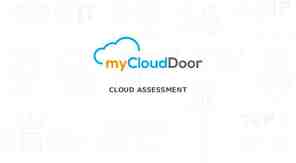What is your Business Credit Score?
22 Slides954.51 KB

What is your Business Credit Score?

Business Credit Business credit is credit in a business’s name It is not tied to the owner’s creditworthiness Instead, business credit scores depend on how well a company can pay its bills Consumer and business credit scores can vary dramatically

Dun & Bradstreet’s System Any business wanting a business credit score needs a D-U-N-S number This is the number by which D&B identifies your company and gets it into their system No D-U-N-S number? Then there can be no record at D&B

Dun & Bradstreet Their main score is PAYDEX But a business will not get a PAYDEX score unless it has at least three trade lines reporting Plus they must have a D-U-N-S number A business must have BOTH to get a score or a report from D&B

The D&B Rating The Rating The rating contains a Financial Strength Indicator It is calculated using either the Net Worth or Issued Capital of a company If both figures are available, then Net Worth will always be used D&B will show if a business is new or if they never got this information It also adds a Condition Code or Risk Indicator This measures the amount of risk the creditor can expect, by taking into account key items in a D&B Business Information report which are used to predict the likelihood of a business failure A company gets the lowest rating (5) if no information is provided

D&B Rating By definition, a startup company is considered to be high risk because they have no commercial credit score Your stellar personal credit doesn’t matter here D&B is just trying to figure out if your company can pay its bills Because D&B doesn’t know that for sure they err on the side of caution

D&B Rating D&B provides their own rating. It is based on: information in your company’s interim or fiscal balance sheet an overall evaluation of your firm’s creditworthiness The scale goes from 5A to HH; these Rating Classifications show your company size based on worth or equity as computed by Dun & Bradstreet They assign such a rating only if your company has supplied a current financial statement If your company is brand new, it probably doesn’t have a financial statement at all

Dun & Bradstreet The D&B delinquency predictor is meant to show just how likely your company is to be late in paying your debts This takes historical information to try to predict future outcomes D&B considers objective and statistically derived data, rather than subjective and intuitive judgments They use a scoring system to rank and order accounts based on the probability of late payments However, Predictive Scoring only represents a statistical probability, and not a guarantee But a new company has no historical information BY DEFINITION

Experian and Equifax They aren’t going to generate a business credit score for a company until there are some payment experiences New companies have few, if any, payment experiences Hence these scores are virtually nonexistent And you have no known payment history, either This can make creditors nervous

Experian and Equifax Unlike D&B, they WILL create a report for a business even if that business has no trade lines reporting All they want is a business name and address and an SIC code Those are called business demographics

Experian and Equifax If Experian and Equifax have your basic business demographics they will populate a report but don’t expect it to have a good score because they will consider a company with no trade lines reporting to be risky BY DEFINITION

Experian A business with no credit history will have an Intelliscore Plus of medium or even high risk The Financial Stability Risk will be medium or high risk The Active Business Indicator will flag a company as being inactive Such a company will only be approved for – maybe – 1,000 in business credit

Equifax Equifax will break down why they see a business as being risky They will not have a 24 month history for a new company or any age to ascribe to its trade lines But on the positive side, you probably have no inquiries or liens, collections, or bankruptcies

Payment History Matters How well does your company pay its outstanding invoices? Are you late, or early, or are you on time? Do you pay your invoices in part, or in full? How has your business’s payment performance changed over time?

Payment History Matters Credit reporting agencies will generally look at the previous 12 months They will consider your payment trends So are you showing continuing payment failures or are you improving?

How can you build a business credit score from scratch? All is not lost! Even new companies with no credit scores can build business credit Following the correct order makes a difference and saves time It also prevents frustration – the order matters in terms of your likelihood of being approved

Building business credit from scratch Developing a good payment history is critical Start with small starter vendors (trade lines) These trade lines often provide Net 30 terms You are far less likely to be turned down They often do not pull your credit reports at all

Secured Credit with Collateral This is financing obtained with some form of collateral Creditors like collateral because it gives them some form of security if your company cannot pay its invoices or it goes bankrupt

Secured Credit with Collateral If your business has no sales yet, you can still have collateral Collateral can also be: Stocks or bonds owned by the borrower A 401(k) account or IRA It can even be a guarantor’s 401(k) or IRA

Building Payment Experiences The Holy Grail is to develop payment experiences for your new business This means using your credit or financing It means paying everything back on time, and in full EVERY SINGLE TIME

Building Payment Experiences These matter the most if a creditor reports to the CRAs But even nonreporting creditors can help if you ask for a trade reference Good payment experiences will help raise your score EVERY TIME

Recap for What is your Business Credit Score to Start? Get a D-U-N-S number and get into D&B’s system Expect your early scores to be abysmal CRAs can’t calculate much so they err on the side of caution Payment history matters You can build business credit from scratch Your mission is to build payment experiences






